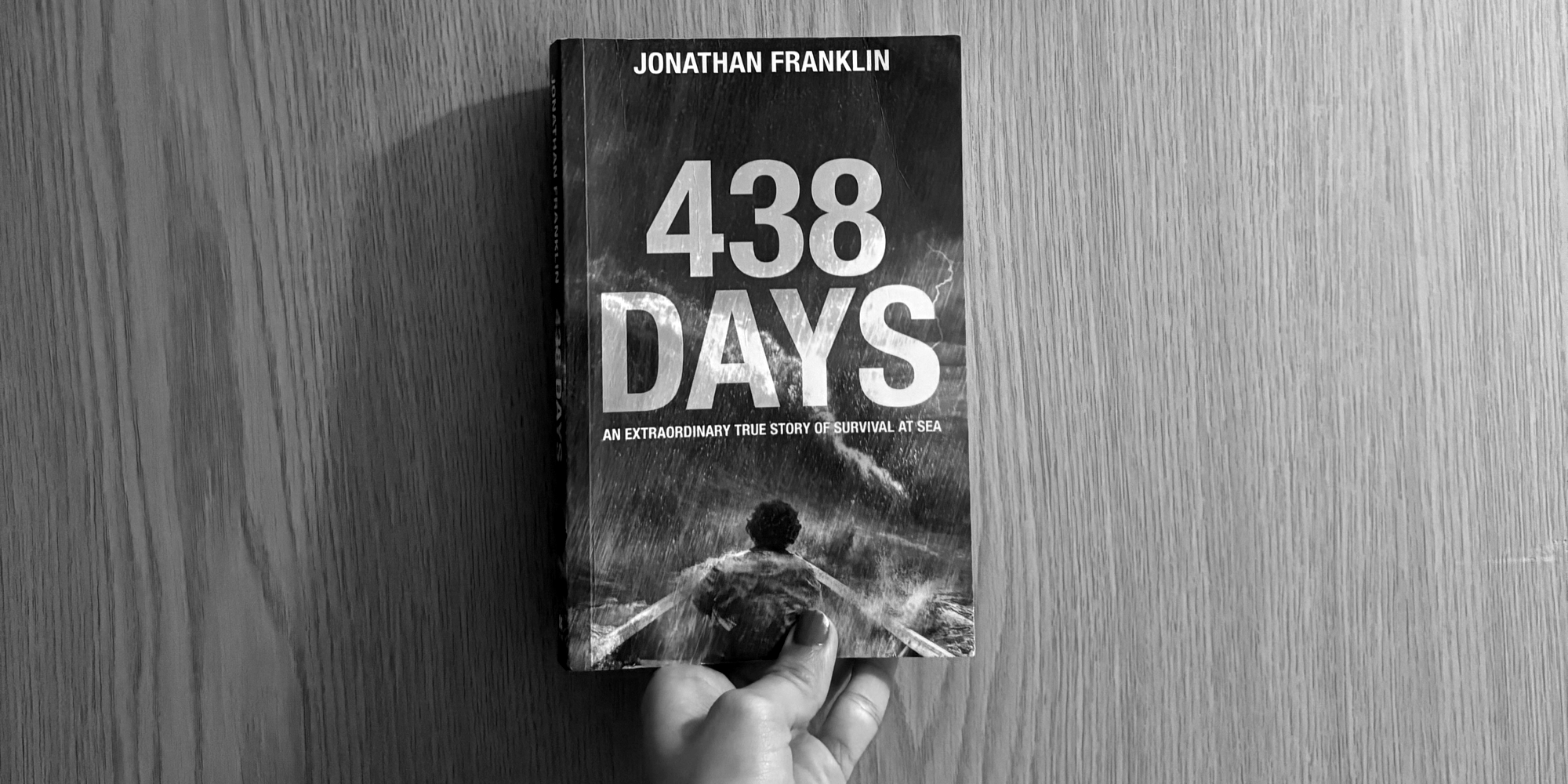Book Review: 438 Days

What is it about?
438 Days: An Extraordinary True Story of Survival at the Sea by Jonathan Franklin is a book about a fisherman who gets lost at sea after a storm hits. For 438 days, this man fights to stay alive using his courage, mindset, and problem-solving skills. He starts his journey with a less experienced fisherman, who sadly doesn't make it. In the end, Alvarenga is the only one who survives. This book shows us just how tough people can be when faced with extreme challenges.
Why it appealed to me?
The slightest incovenience makes us fret upon life. In the most trivial situation, we end up saying 'why god, why me?'. For every person, their problems are the most important. But when you zoom out of your problems or situation, and put it in perspective to what others go through in life, your problems suddenly become a lot smaller.
When I stumbled upon this book, I was shocked. I wanted to know how can anyone manage to survive in the sea for 438 days. How would they meet their basic needs - water, toilets, food, weather? Afterall, it wasn't a cruise or a ship, it was a small fishermen's boat on which Alvarenga and his partner got lost.
Even before reading the story, I googled about it. I found out about José Salvador Alvarenga, the man who survived.

I saw images of the tiny boat he lived on for those 438 days.

It made me curious about the limits of human endurance and what we're capable of in extreme situations. Alvarenga caught fish and sea turtles with his bare hands, and drank their blood when rainwater was scarce. He ate seabirds that landed on his boat and even ate his own fingernails for survival. He used plastic bottles and containers found floating in the ocean to store water whenever it rained. He used his large ice chest box as a shelter on the boat to protect himself from the harsh sun, cold winds and crashing waves.
Alvarenga's mental strength was a key factor in his survival. He had set his mind on coming out alive, to reunite with his family. It is all he would think about. He had unwavering resilience and hope, setting him apart from his fishing partner, Córdoba, who had accepted his fate and set his mind of death. Alvarenga kept his mind active by singing, praying, and maintaining his boat. To keep Córdoba's spirits up, Alvarenga would tell stories, joke around, and constantly talk about their eventual rescue. Despite Alvarenga's efforts, Córdoba's mental state declined over time and he died.
This story shows the power of faith and a strong mindset in overcoming even the darkest situations. It teaches us that giving up is never the only option, even when everything seems hopeless.
In our own lives, we might face challenges that feel overwhelming. While they may not be as extreme as Alvarenga's, his story can inspire us to keep going, to find that inner strength, and to believe that we too can overcome our personal storms.
Should you read it?
This book is not just about a man surviving at sea – it's about the incredible power of the human spirit. Reading it will make you feel more grateful towards life and will remind you of how comfortable our lives usually are, and how much we're capable of when pushed to our limits.
However, there are some parts in the book that can make you feel queasy, especially when the author describes the resources Alvarenga's uses to survive.
But overall, the book is super enagaging and very well written. It will feel like a movie running in your mind. You'll find yourself rooting for Alvarenga, feeling what he must be feeling and celebrating his small victories. It's a powerful reminder that hope, no matter how small, can be the difference between life and death.

